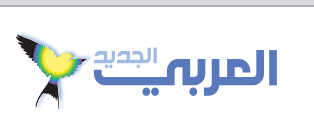Sudan has been living, since April 2023, through an open war between the army and the Rapid Support Forces (RSF). At the outset, it was described as a struggle between two generals for power, but it quickly revealed itself to be far more complex, as questions of identity, tribe, economic interests, and regional and international wagers became deeply entangled. The question today is not about who wins or loses the battle, but about Sudan’s very future: are we facing a war over the identity and fate of the state, or a purely military struggle over power and wealth?
The conflict escalated when RSF commander Mohamed Hamdan Dagalo (Hemedti), from Darfur, announced that he had taken an oath as head of a presidential council within a parallel government founded by the “Founding Sudan Alliance.” This was not a symbolic step but a clear political message: the RSF is not satisfied with holding ground but seeks to impose an alternative authority. The army responded by appointing a government in Port Sudan under Kamel Idris, seeking to reaffirm central legitimacy. Sudan now has two parallel governments: one controlling the coastal capital and large parts of the north and east, the other rooted in Darfur and the west. This division threatens to transform battle lines into permanent political borders.
The RSF began as a paramilitary force tied to the Darfur conflict, later becoming an economic player dominating gold trade and smuggling. Today, it aims to use this clout to build a political entity. The army sees itself as the heir to the Sudanese state since independence but has never been a neutral institution. Thus, two armed forces – each with its economic networks, tribal alliances, and foreign support – compete to monopolise power through force rather than civilian legitimacy.
The identity question fuels the conflict through rhetoric of mobilisation and tribal alignment. In Darfur, memories of ethnic war are revived; in Khartoum, the defence of the central state dominates. This politicisation of identity deepens divisions and has enabled atrocities, as seen in El Fasher and Nyala, where international groups documented killings based on identity by RSF elements. Yet, to frame the war as an “identity conflict” obscures the real driver: a contest for power and wealth.
The war has created catastrophic humanitarian consequences. More than ten million Sudanese have been displaced, making Sudan the world’s largest displacement crisis. Nearly half the population faces severe food insecurity, with famine looming in entire regions. The health system has collapsed: hospitals destroyed, medical staff fleeing, and vaccination rates against basic diseases dropping to their lowest level in four decades. Outbreaks of cholera, measles, and polio have been reported, making the health crisis as lethal as the war itself.
Regionally and internationally, Sudan has become an arena of competition. Egypt sees northern Sudan’s stability as key to its security. The UAE is tied to gold trade and RSF dealings. Saudi Arabia views the Red Sea as a strategic field. Russia seeks a naval foothold in Port Sudan and influence through private security firms. Meanwhile, the United States and the European Union aim to prevent Sudan from turning into a Russian-Chinese stronghold. The involvement of multiple outside players has complicated any resolution, as each Sudanese faction now enjoys foreign backing.
The future is uncertain. Could the country split into eastern-central and western authorities? Could Sudan repeat Libya’s scenario of two rival governments persisting for years? Or will exhaustion force serious negotiations? Mediation has failed: Jeddah talks collapsed, the African Union lost initiative, IGAD suffers divisions, and no unified process exists to compel peace.
[by Mohammad Khalil Baraoumi in Al-Araby Al-Jadeed]
Compiled and translated by Faizul Haque




